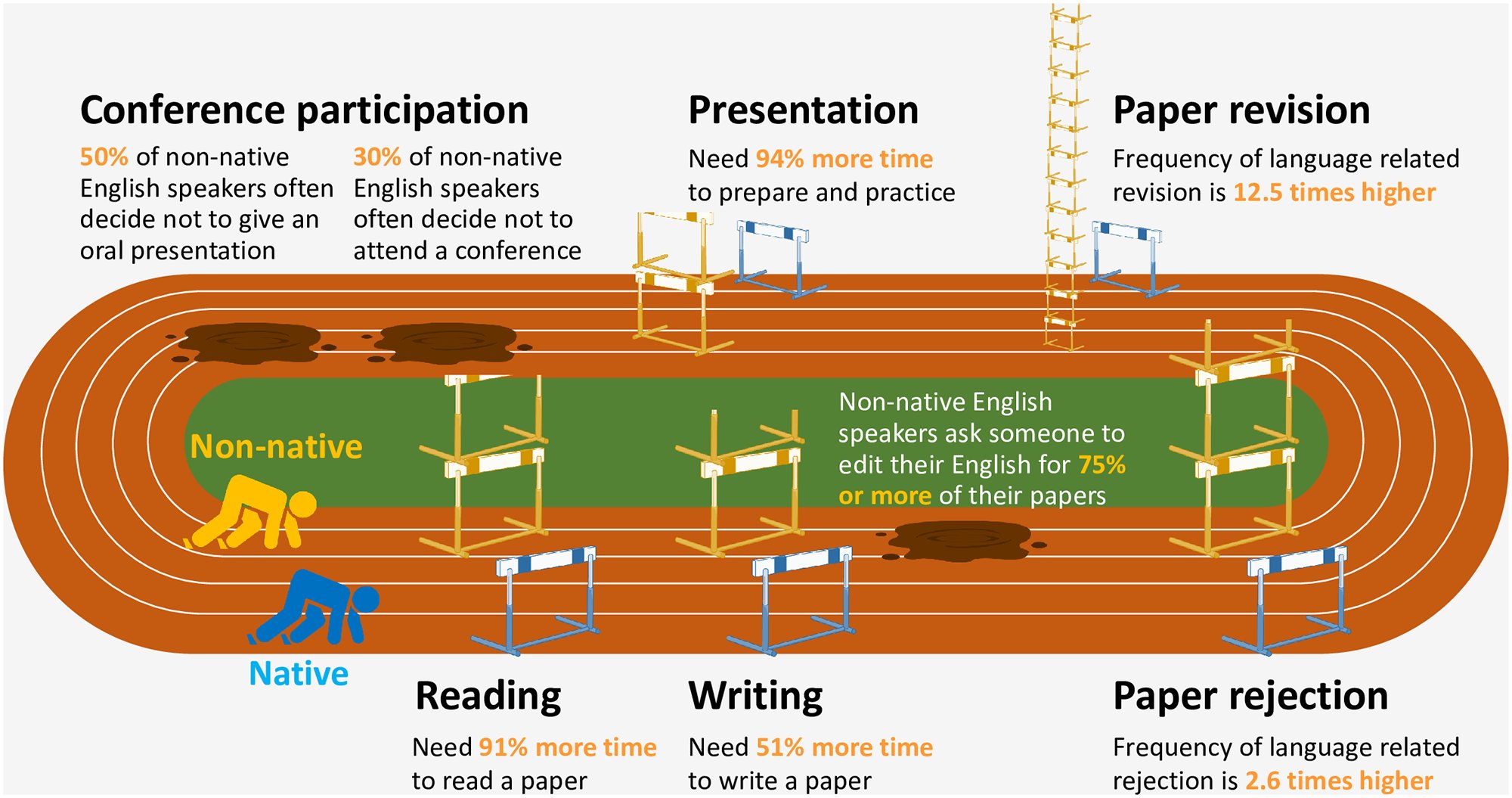The true cost of science’s language barrier for non-native English speakers
July 20, 2023
 How difficult can it be to work in science when English is not your native language?
In a recently published paper, Biological Sciences postdoc Flavia Montaño-Centellas,
along with researchers from several Universities, aims to uncover these barriers and
what academia could do to help.
How difficult can it be to work in science when English is not your native language?
In a recently published paper, Biological Sciences postdoc Flavia Montaño-Centellas,
along with researchers from several Universities, aims to uncover these barriers and
what academia could do to help.
"Imagine being a PhD student whose first language is not English.
Compared to a fellow student who is a native English speaker, you would need considerably more time, or financial cost, to understand every single English-language paper you read, to write your thesis chapters in English, and to polish the English writing before submitting your manuscripts to journals. You would also struggle with paper publication, as your papers will be rejected more often and be subject to revisions based on the written English. Following the publication of your papers, you would need to make an extra effort for dissemination, as you will be doing this in English as well as your own language(s). You will also find yourself hesitating to attend an international conference, or give an oral presentation, ending up losing opportunities to develop an international network. When you do decide to give an oral presentation, you would again need more time than native English speakers for its preparation, after which you would still be frustrated as you are unable to present your work as effectively in English as you would in your first language.
What is more, all of these barriers will continue to get in your way as long as you remain in a research career."
Historically, the scientific community has rarely provided genuine support for non-native English speakers. Instead, the task of overcoming language barriers has been left to individuals’ own efforts.
There are a number of actions individuals, institutions, journals, funders and conference organizers can take to change this.
As a first step, journals could do more to provide English editing support to academics (as Evolution has started doing) and could accept multilingual publications (as the preprint server EcoEvoRxiv does).
Conference organizers also have myriad opportunities to support non-native English-speaking participants. For example, last year’s Animal Behaviour Society conference incorporated a multilingual buddy program to improve inclusivity.
Artificial intelligence (AI) may have a role to play, too. AI was widely used by our survey participants for English editing.
The British Ecological Society recently integrated an AI language editing tool into its journals’ submission system. However, some journals have banned the use of such tools.
We believe it’s worth exploring how the effective and ethical use of AI can help break down language barriers, especially since it can provide free or affordable editing to those who need it.
The scientific community urgently needs to address language barriers so that future generations of non-native English speakers can proudly contribute to science. Only then can we all enjoy the full breadth of knowledge generated across the globe.
Additional Links: